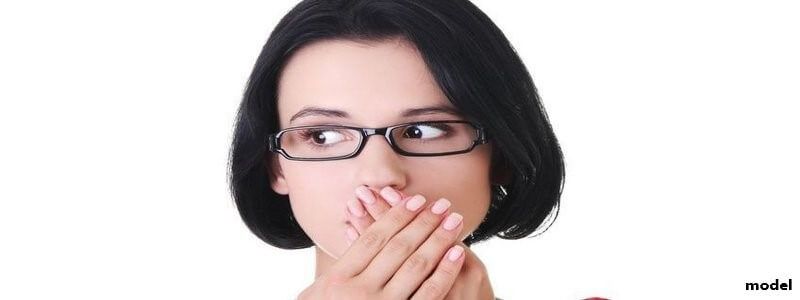Understanding Cold Sores: Causes, Symptoms, and Effective Treatments
Originally published on March 4, 2020. Updated with new content.
Cold sores, also known as fever blisters, can be a painful and frustrating ordeal for those who experience them. Understanding the causes, symptoms, and effective treatments for cold sores is essential for managing and preventing outbreaks. In this guide, we will deep dive into the science behind cold sores and provide practical tips for dealing with them.
What are cold sores?
Cold sores are small, fluid-filled blisters that typically appear on or around the lips, although they can also occur within the mouth (along the gums or the mouth’s roof), inside the nostrils, or on the chin and cheeks. These blisters are often preceded by a tingling, itchy, or burning sensation and can be accompanied by redness and swelling.
What causes cold sores?
Cold sores are caused by the herpes simplex virus (HSV), with most cases being attributed to HSV type 1 (HSV-1). HSV-1 is highly contagious and can be transmitted through direct contact with an infected person or by sharing utensils, towels, or other personal items. Certain factors can trigger cold sore outbreaks, including stress, fatigue, hormonal changes, exposure to sunlight, and a weakened immune system. Additionally, some individuals may be more susceptible to cold sores due to genetic factors or underlying health conditions.
It’s estimated that 50 to 80% of Americans are infected with herpes virus which may lead to cold sores development. However, actual occurrence of cold sores differs greatly from person to person. Some individuals infected with the herpes virus will never develop a cold sore as the virus remains dormant. For others, cold sores can as frequently as 2-3 times per year after the virus is triggered by stress, fatigue, or injury.
Common symptoms of cold sores
The symptoms of cold sores can vary from person to person but often include:
- Tingling or burning sensation around the lips
- Redness and swelling
- Formation of small, fluid-filled blisters
- Pain or discomfort when eating or talking
- Crusting and scabbing as the blisters heal
How long do cold sores last?
Cold sores typically go through several stages, including the initial tingling sensation, blister formation, ulceration, and finally, crusting, and healing. The entire process can take anywhere from 7 to 14 days, with the blisters usually lasting for about 2 to 3 days before bursting and forming a crust.
The science behind cold sores
Cold sores occur when the herpes simplex virus enters the body and infects the cells around the lips or mouth. Once inside the cells, the virus replicates and causes the characteristic symptoms of cold sores. Factors such as stress, sunlight, and a weakened immune system can trigger the reactivation of the virus, leading to recurrent outbreaks.
How are Cold Sores Diagnosed?
Physicians are often able to properly diagnose cold sores through visual inspection. At times, a doctor may order a blood test or test a sample of the fluid from an active sore to confirm the diagnosis.
Effective treatment options for cold sores
While there is no cure for cold sores, several treatment options can help alleviate symptoms and promote healing. These include:
- Over-the-counter antiviral creams or ointments
- Prescription antiviral medications
- Pain relievers such as ibuprofen or acetaminophen
- Cold compresses to reduce swelling and discomfort
How to get rid of cold sores quickly?
Unfortunately, there is currently no cure for cold sores. Typically, cold sores clear up on their own after 1-2 weeks. After a period, the sore will typically break and ooze. A yellow crust develops on top of the sore which scabs away revealing pink skin that heals without causing scarring.
There are, however, a few options that can both shorten the duration of cold sore occurrence and minimize pain and discomfort:
- Apply antiviral creams or ointments as soon as symptoms appear
- Avoid picking or scratching at the cold sores, as this can prolong healing and increase the risk of infection
- Keep the affected area clean and dry to prevent bacterial growth
- Use a cold compress to soothe pain and reduce swelling
- Avoid triggers such as stress, sunlight, and certain foods that may exacerbate cold sore outbreaks
How to prevent cold sores?
The only way to prevent cold sores is to prevent the transmission of the herpes virus. While it may not be possible to prevent cold sores entirely, there are steps you can take to reduce your risk of outbreaks:
- Practice good hygiene, including frequent hand washing and avoiding close contact with individuals who have active cold sores
- Avoid sharing personal items such as utensils, towels, and lip balm with others
- Manage stress through relaxation techniques such as meditation, yoga, or deep breathing exercises
- Protect your lips from prolonged exposure to sunlight by wearing sunscreen or lip balm with SPF protection
- Consider taking antiviral medications as prescribed by your doctor if you experience frequent or severe cold sore outbreaks
- Avoiding kissing or touching someone who has an active cold sore
- Practice safe sex
When to see a dermatologist
While most cold sores can be managed at home with over-the-counter remedies, it is important to consult a dermatologist if you experience any of the following:
- Severe or prolonged symptoms that do not improve with treatment
- Frequent or recurrent cold sore outbreaks
- Cold sores that are accompanied by other symptoms such as fever, headache, or swollen lymph nodes
- Cold sores in infants or individuals with weakened immune systems
Cold sores can be a nuisance, but with the right knowledge and treatment options, you can effectively manage outbreaks and minimize their impact on your life. By understanding the causes, symptoms, and effective treatments for cold sores, you can take proactive steps to prevent outbreaks and maintain optimal oral health.


I have been looking for such an information about cold sore for along time. Thanks for this.